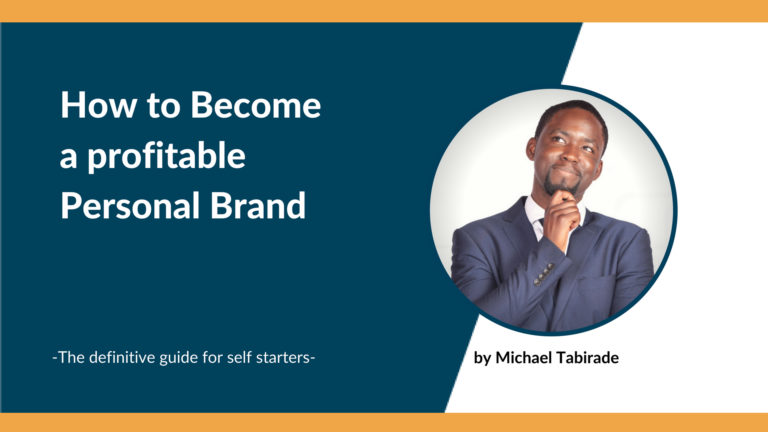Why Public Speaking is Important – Especially for Personal Brands
Why is public speaking important? As a personal brand it is important to make sure that people are aware of your ability to solve a specific problem. If you’re a motivational speaker, you must be able to help people untap latent potential that could transform their lives. If you’re a weight management coach you must be able to give people the knowledge, tools and motivation to shed the pounds. Public speaking is a skill we use every day. Some people utilise this skill better than others, but as a personal brand it’s one that should not be ignored. In this article I’m going to highlight the importance of public speaking and how you can use it to market your products and services.
Public speaking is important because it quickly positions you as the expert. It enables you to form a relationship with your target audience quickly and more effectively. It is also a great marketing tool based on this very reason. People want to experience the person, and not always behind a screen. Saying that, you have the opportunity to record all talks and leverage them online to attract more people to your community and eventually your business.
Know your worth

You must know what you’re passionate about or what you’re good at before you embark on this journey. Write down a list of different credentials:
- Qualifications
- Experiences
- Passions
- Training
In addition, write down a list of things that you like and don’t like. If you’re stuck, ask a group of trusted friends and family members to get an idea of what they think you are good at or possibly appear to be passionate about. Gather themes from all this information and make a decision on what makes sense to embark on. If you already know what your expertise is in, or should be in, you can skip this step.
Validate your niche

Once you have chosen your expertise you need to validate that people are actually interested in this topic. You do this by determining the following:
- The search volume online using “long tail keywords” – Brainstorm a list of keywords associated to your niche area and then Google’s search autosuggestions that pop up, and chrome extensions like “Keywords Everywhere,” to find more keywords. Once you have installed the chrome extension you should be able to see the search volume for each keyword
- Searching for key problems that people have in that industry – Find key problems in your niche by searching for them on websites like Quora, and thematically breaking down the key ones that pop up again and again. Track your information to help you develop a framework and content for the future
- Discovering thought leaders and how they are addressing these problems – Search on Google, YouTube and social media platforms to see what thought leaders in your niche are doing. You can get ideas from books you’ve typed in on Amazon, events and other things associated to your niche
- The volume of products and services present in this market – Search for products on Amazon, Udemy, Clickbank and other places to guage the demand in the market i.e. if the search volume is high on these markets in comparison to other niches, you know there is demand. Anything in the 100,000s+ is in demand
Create a Framework

Once you have done the above, you’ll begin to clearly outline themes arising. These themes can help you shape an outline on topics and subtopics that you can focus your expertise on. These topics should be listed in logical or chronological order, especially if your business includes services. What’s also great is that you can create content, courses and books based on this very framework. Use this framework to create signature talks that eloquently and effectively allow you to communicate your message to your audience.
I learned that it’s about how you organise information that provides value for our target audience. The way to attract speaking opportunities is to network and produce an insane amount of high-quality content on a regular basis; content that is consistent with your brand and educates and empowers people about a clear niche topic.
Structuring your Signature Talk

When it comes to structuring your talk, you want to think about what gives the best effect. Good speakers are able to incorporate one of the following:
- Stories
- Humour
- Facts & Figures
Depending on who you are, you will lean more toward one compared to the others. Furthermore, it’s best to focus your efforts where you are strongest. On the contrary, a balance of all three, in some way is always good to adopt. People connect with those who are relatable but are confident with what they know. Using all of these devices will help you develop a relationship with them.
In addition, many talks are conducted in a specific order. There is no right or wrong way, but there are many people who have practiced their talk to death following a neat structure. Here’s an example:
- Open with questions relating to the audience’s pains or desires
- Speak to those pains or desires further
- Validate your topic further with more questions
- Brief introductions
- Talk about your experiences, showing your shock, summit and success e.g. how you went from rags to riches
- Introduce your content and talk about it (3 – 6 topics)
- Validate understanding and usefulness of the talk
- Create a call-to-action
This is a simple structure anyone can follow, and can quite easily be used for video, webinars and live talks on stage. Remember to practice your talk as often as possible. A study has shown that great speakers practice their talk 200 times before they release it to the world.
Attract your audience

Excellent business owners solve the biggest problems in multiple ways.
Gather as much knowledge and understanding on your topic, and start listing targeted keywords that have great search volume. Start to produce video, audio and/or written content around your topic. The aim of the game is consistent publishing as regularly as possible. Aim to post at least 1 – 5 times a week, bearing in mind the more you post the better. It would be a complete waste of time if you were producing content that no one looks for. My advice is to do the keyword research before you start posting anything.
The second step is to attend as many events as possible and start forming relationships with people. You do this by being clear as to:
- Who you are
- What you do
- Who you do it for and why
- How you do it
For example, My name is Daniel and I’m a Brand consultant. I help millennial digital marketers build an attractive personal brand so that they can acquire more customers. I do this through online courses and one-to-one consulting services.
Now, you don’t need to know this word for word, however, you do need to confidently mention the 4 elements in this statement. Practice it regularly because it’ll give you the confidence you need when speaking to new people. Show people your content, books and videos so that they validate your expertise. People will search for your name on Google, and you want to make sure they have something worth searching for.
The final piece of advice
Do as many talks as you can and film everything. Even if you are alone, get your camera stand, mobile phone brace and film yourself using your smartphone. With this, you can develop macro and micro-content which will be used as content, and serve as marketing. Use platforms like YouTube and Instagram to promote your content on a consistent basis.
The benefits of video allow you to create:
- Transcriptions or summaries for your written posts
- Extracted MP3s for your podcast
- Social media content
- Facebook advertising videos
- Landing page videos
The main aim is to make sure you know what problems you want to solve, create a signature talk, organise it into topics in themes and deliver talks that you can film and redistribute. This article should be a stepping stone for helping you understand why public speaking is important, especially for a personal brand.









One Comment
Comments are closed.